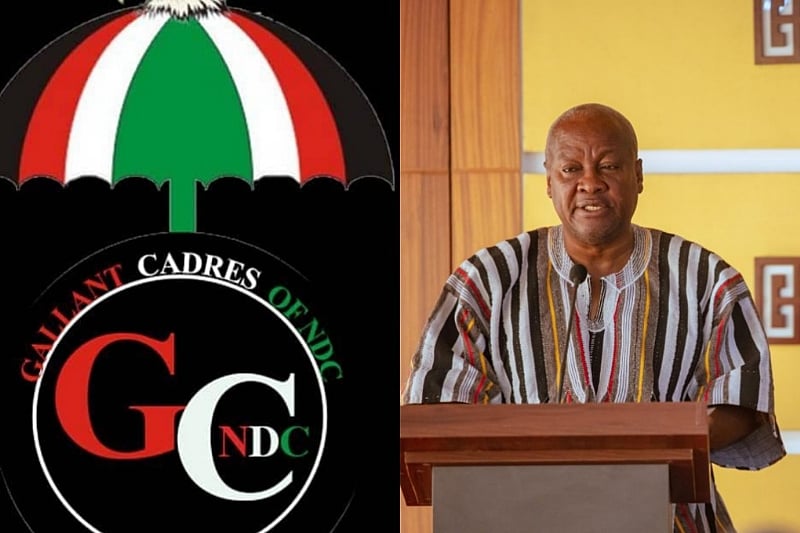The National Democratic Congress (NDC) cadres, in a resounding endorsement of President John Dramani Mahama’s leadership, have lauded the implementation of three pivotal social intervention programmes: the Adwumawura Programme, the Work Abroad Policy, and the 100 Million Coders Programme. These initiatives, targeting the pervasive challenge of youth unemployment in Ghana, are being heralded as a significant stride towards empowering the nation’s youth through focused entrepreneurship development, job creation, and comprehensive skills training. The cadres contrasted Mahama’s approach with the previous administration, arguing that these new programmes represent a shift towards purpose-driven resource allocation designed for measurable impact, unlike what they perceive as the less effective strategies of the Akufo-Addo government. The statement emphasized the thoughtful design of the Adwumawura and Coders programmes, specifically aimed at maximizing the effective utilization of national resources. Furthermore, the Work Abroad Policy, implemented through the Youth Employment Agency (YEA), was highlighted for its potential to create structured and inclusive opportunities for Ghanaian youth within the global job market, thereby contributing to both unemployment reduction and economic growth.
The NDC cadres expressed their strong commendation for President Mahama’s swift and decisive response to the pressing issue of youth unemployment, asserting that his leadership has revitalized the hopes of young people throughout the country. They expressed confidence in Mahama’s continued commitment to introducing innovative policies aligned with his broader vision for national development. The statement conveyed a strong sense of optimism, portraying these initiatives as the dawn of a new era for Ghanaian youth and anticipating their positive impact on the nation’s future. This sentiment underscored the cadres’ belief in the transformative potential of these programmes to create a brighter future for the nation’s burgeoning youth population.
Beyond the youth-focused initiatives, the NDC cadres also acknowledged President Mahama’s fulfillment of his 120-day social contract with the Ghanaian people, specifically citing the implementation of free tertiary education for persons with disabilities and the commencement of the free sanitary pad distribution programme for female students in primary and secondary schools. The statement emphasized the strategic importance of the sanitary pad initiative in addressing school dropout rates among girls, highlighting its aim to remove menstruation-related barriers and ensure consistent school attendance throughout the academic year. This commitment to supporting girls’ education is further underscored by the allocation of GH¢292.4 million in the 2024/2025 national budget for the nationwide distribution of sanitary pads, a move lauded by the cadres.
The Adwumawura Programme, a key component of President Mahama’s social intervention strategy, is designed to equip Ghanaian youth with the necessary skills and resources to thrive in the entrepreneurial landscape. This programme likely encompasses a multifaceted approach, incorporating elements of vocational training, business development support, and access to seed capital or micro-financing. The goal is to empower young people to create their own opportunities and become active contributors to the national economy. By fostering entrepreneurship, the Adwumawura Programme aims to reduce reliance on traditional employment models and stimulate innovation and economic diversification.
The 100 Million Coders Programme, a bold initiative with a focus on the digital economy, aims to equip a significant segment of the Ghanaian population with coding skills, preparing them for the increasing demand for tech-related jobs both domestically and internationally. This programme recognizes the transformative potential of the digital sector and seeks to position Ghana as a hub for technological innovation. By training a large pool of coders, the programme aims to attract investment in the tech sector, create high-paying jobs, and enhance Ghana’s competitiveness in the global digital landscape.
The Work Abroad Policy, managed through the Youth Employment Agency (YEA), represents a strategic approach to leveraging opportunities within the global job market. This policy likely involves collaborations with international organizations and businesses to facilitate placements for skilled Ghanaian youth in foreign countries. This initiative not only addresses unemployment directly but also provides avenues for skills development, exposure to international best practices, and the potential for remittance inflows that can contribute to the national economy. By creating structured pathways for working abroad, the policy seeks to maximize the benefits of international labor migration for both individual Ghanaians and the nation as a whole.
The free sanitary pad initiative demonstrates President Mahama’s commitment to addressing gender inequality and promoting inclusive education. By providing free sanitary pads to female students, the government aims to eliminate a significant barrier to school attendance for girls, particularly those from disadvantaged backgrounds. This intervention recognizes the social and economic implications of girls’ education and aims to ensure that all young women have equal opportunities to pursue their education, regardless of their economic circumstances. The allocation of substantial funding for this initiative signifies the government’s prioritization of girls’ education and its understanding of the long-term benefits for individual development and national progress.
In conclusion, the NDC cadres’ enthusiastic endorsement of President Mahama’s social intervention programmes reflects a strong belief in the transformative potential of these initiatives. By targeting youth unemployment, promoting skills development, leveraging global opportunities, and addressing gender disparities in education, these programmes are positioned to contribute significantly to Ghana’s socio-economic development. The cadres’ emphasis on the strategic design and efficient implementation of these programmes underscores their expectation of tangible and measurable impact, paving the way for a brighter future for Ghanaian youth and the nation as a whole.














